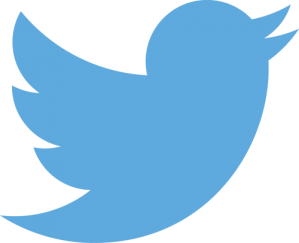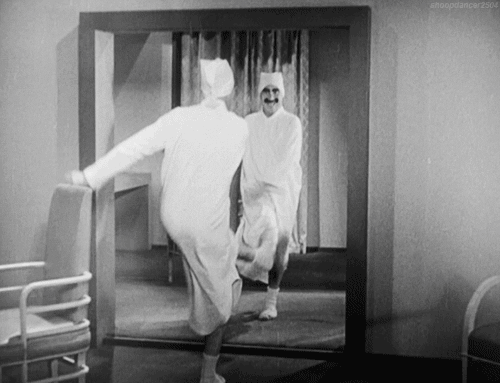News broke last night that Twitter had suspended accounts for both @Deadspin and @SBNationGIFs after receiving a bevy of DCMA requests from the NFL, who felt those accounts’ practice of posting game-play GIFs that were owned by the league violated its copyright.
The immediate reaction among the Twitterati was as expected as it was swift, with most people slapping the NFL around for being too litigious about these clips and GIFs since, these folks argue, the sharing of these media helps promote and discuss the NFL’s product and isn’t that a good thing? It is, as usual, a bit more nuanced than that. Let’s take a look at some of the issues in play here:
From the NFL’s point of view these accounts are using media it alone has the rights to. Whether the GIFs/Vines themselves have been produced by the league, those media are based on and ripped from media it *has* produced, most often the TV broadcast. The reality is the league does own that and creating ancillary media from those broadcasts is the very “unauthorized use” that is always referenced as not being permitted.
For Twitter, it’s walking the fine line between being a wide open network for anyone to express themselves on and being a valued partner for media companies like the NFL, with whom it signed a big partnership earlier this year involving the sharing of exclusive video and other media. Twitter wants those partnerships since they bring in money directly, thereby attracting (hopefully) a bigger audience who’s attracted to that exclusive content thereby generating more indirect revenue from additional advertisers who see the value in that big audience. Many of Twitter’s big moves in the last few years have been to make it more friendly for media brands to engage on and make it easier for casual users to find and engage with that content. So it’s in the position of protecting sometimes conflicting interests.
 Twitter will also eventually have to address what seems to be its absolute power over who is or isn’t publishing on its platform. This is actually not unique to Twitter – Tumblr and Facebook and other networks and platforms have all had their own issues along this front – but if we are operating in a world where these platforms can take down or suspend an account with little to no notice to the owner that’s very disturbing. How can anyone feel comfortable using it as a meaningful part of their business if they can turn around and find it gone because of a DCMA request or other issue that the account manager may not be in a position to address? Twitter and other networks will need to be much more transparent with how they address these issues to fight the sense that the rug can be pulled out from an account at any moment. And yes, this is why while networks like this are great, the focus should be on owned, not managed, platforms.
Twitter will also eventually have to address what seems to be its absolute power over who is or isn’t publishing on its platform. This is actually not unique to Twitter – Tumblr and Facebook and other networks and platforms have all had their own issues along this front – but if we are operating in a world where these platforms can take down or suspend an account with little to no notice to the owner that’s very disturbing. How can anyone feel comfortable using it as a meaningful part of their business if they can turn around and find it gone because of a DCMA request or other issue that the account manager may not be in a position to address? Twitter and other networks will need to be much more transparent with how they address these issues to fight the sense that the rug can be pulled out from an account at any moment. And yes, this is why while networks like this are great, the focus should be on owned, not managed, platforms.
For users, they just want good content regardless of where it comes from. Most everyone doesn’t care where a GIF or video comes from, they just want to watch, share and use that media. As I wrote before, people are using these kinds of media not just to express their fandom for a sport, movie or anything else, they’re using this media as a form of self-expression. So if they see a GIF of a quarterback getting hammered by a linebacker some people will want to use it to criticize that quarterback, some will use it to praise that linebacker and others will use that to express how they feel about an email they just received, a conversation they just had with their daughter or some other life moment that can perfectly summed up by that GIF.
So while everyone is coming from completely defensible positions – yes, the NFL’s point of view is absolutely legitimate and understandable if you’re not a hippie – what can be done to align those interests and move forward in a way that protects corporate IP and gives people the freedom to mashup media in new and interesting ways?
The reality is that if there’s a side that is going to need to compromise more it’s the IP holder, in this case the NFL. But other sports leagues are in the same boat, as are all movie studios, TV networks and other media producers. Any movie studio could go after any number of media sites and individuals who are GIFing clips from their movies for use on Twitter in an unauthorized way. Any TV network or studio could do likewise. There’s little to no difference between a GIF from an NFL football game and a GIF from Duck Soup or The Big Lebowski.
While there are certain fair use concepts and statutes in play here, there’s also plenty of legal ground for them to stand on to take a lot of these down. I guarantee you within the next year sites like Giphy that act as GIF warehouses will have to go through the same process YouTube did years ago and put processes in place to authorize content from rights holders and spike unauthorized material. It’s one thing for people to share their custom-made GIFs on networks like Tumblr and Twitter, but curation platforms like Giphy are a different beast.
One reason why media companies like Deadspin are coming into the crosshairs is that there are different standards for those companies – or companies of any kind – then there are for individuals. There are expectations that these companies will be the ones who respect the rights of the IP holders because it’s in their best interest to do so, both because they don’t want to honk off those rights holders (it could hurt their access) and because anything that weakens IP protections could ultimately hurt them as well. If a rising tide raises all ships, a lowering tide impacts all ships as well. There’s also just the fact that media companies present much bigger targets and are much more easily pursued for violations than individuals, though obviously that hasn’t stopped music labels and movie studios from going after people they believe have pirated their material.
There will be a balance struck between all these competing interests. IP holders will figure out that there are some battles that aren’t worth fighting because they’re closing the barn door after the horses have all gone out. And some of the tools and platforms that are being used will have to work with rights holders to create environments that are comfortable for them and for the users who want to share that perfect Parks & Recreation GIF without fear of legal repercussions. But incidents like the NFL’s crusade against unauthorized GIFs are the waters that will need to be muddled through in order to get there.

